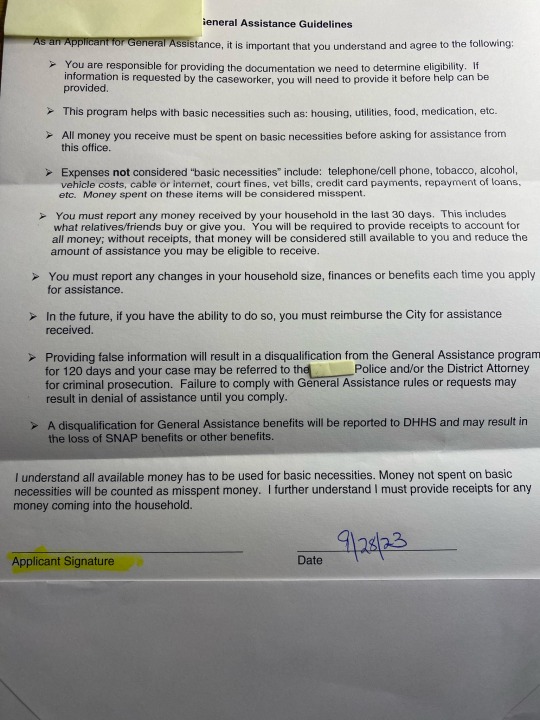#dhhs
Explore tagged Tumblr posts
Text


In the letter, the 77 Nobel laureates in medicine, chemistry, physics and economics said they have concerns about Kennedy's lack of "relevant experience" and about some of the public positions he has taken.

More than 75 Nobel Prize winners have signed a letter urging senators not to confirm Robert F. Kennedy Jr., President-elect Donald J. Trump’s pick to lead the Department of Health and Human Services.
The letter, obtained by The New York Times, marks the first time in recent memory that Nobel laureates have banded together against a Cabinet choice, according to Richard Roberts, winner of the 1993 Nobel in Physiology or Medicine, who helped draft the letter. The group tries to stay out of politics whenever possible, he said.
But the confirmation of Mr. Kennedy, a staunch critic of mainstream medicine who has been hostile to the scientists and agencies he would oversee, is a threat that the Nobel laureates could not ignore, Dr. Roberts said.
“These political attacks on science are very damaging,” he said. “You have to stand up and protect it.”
The laureates questioned whether Mr. Kennedy, who they said has “a lack of credentials” in medicine, science or administration, was fit to lead the department responsible for protecting public health and funding biomedical research.
“Placing Mr. Kennedy in charge of DHHS would put the public’s health in jeopardy and undermine America’s global leadership in the health sciences,” the letter warned.
(continue reading)
#politics#healthcare#rfkjr#antivaxxers#republicans#dhhs#rfk jr#election 2024#libertarians#anti intellectualism#trumpublicans#robert kennedy jr#conspiracy theorists
2K notes
·
View notes
Text
56 notes
·
View notes
Text
RFK Jr. Dabbled In EUGENICS In The Past With COVID. Now With Autism, The Loon Is Back. (Blue Amp Substack)
I'm extracting and posting the entire post by Cliff Schecter from his Blue Amp Substack. Why? The secretary of HHS (robert f. kennedy, jr, or rfk) gave a press conference on April 16 in which he said some horrible, unsubstantiated (and unsubstantiable) things about children with autism. The story really pissed me off on many levels, but particularly on a personal level, because our grandson is on the spectrum, having been diagnosed back when he was three years old. He's now nine. kennedy should (a) keep his fucking mouth shut, (b) resign and (c) crawl back into his hole in the earth never to emerge again. If he won't resign, then dear leader should shit can him.
Here's the story:
Robert F. Kennedy Jr.—when not feeding his cerebellum to a friendly feather duster worm—isn’t just peddling junk science about vaccines and autism—he’s reviving the ugliest ghosts of world history. His claims that vaccines cause autism and that there's an “autism epidemic” tied to mass violence aren’t just wrong, they’re dangerous propaganda ripped from a dusty old playbook of dope-fueled, dingbat science pushed by past amateurs and cons like…him.
The same twisted logic that once led to forced sterilizations in the United States and mass murder in Germany is now being laundered through Kennedy’s speeches and media appearances. By suggesting that autistic people are ticking time bombs of societal decay, RFK Jr. positions himself not as a truth-teller, but as a modern-day snake oil salesman pouring fear into a bottle labeled “progress.” Here is Kennedy with his learned assessment—which is to say about as carefully calibrated as his marriages—on autism:
…these are kids who will never pay taxes. They’ll never hold a job. They’ll never play baseball. They’ll never write a poem. They’ll never go out on a date. Many of them will never use a toilet unassisted.”
Seriously, WTF is he talking about? Though, I must admit, we’d be living on such a superior, spinning, space beach ball if only Albert Einstein, Leonardo da Vinci, Jane Austen, Benjamin Franklin, Bob Dylan, Lionel Messi, Eminem and Greta Thunberg had contributed something to our lives. Pity, that.
Autism isn’t a disease, it isn’t an epidemic, and it sure as hell isn’t a predictor of violence—but to a Kennedy, who shot up enough heroin over 16 years to kill the whale whose head he palled around with, facts are just inconvenient speed bumps on the road to power and delusion. If he wants to find someone who’s never held a real job and had paid less in taxes than Attila The Hun, maybe check in on the harangue-fueled hyena sitting in the Oval Office.
The smear that autistic individuals can’t live normal lives or are mass shooters or serial killers is a steaming pile of ableist garbage. And it’s exactly the kind of congealed-stupidity that dehumanizes those with autism and provides cover for those prone to ideology animated by “superior races” committing the worst atrocities human history has on speed dial.
Also, this horses*t has been debunked by actual experts more times than Kennedy’s found himself in a car with a dead animal riding shotgun. As Psychology Today points out, there is zero evidence linking autism with planned mass violence:
The whole idea of this latest study is flawed. The issue is simple: Correlation does not imply causation. Researchers often forget this to their detriment as they are led to wildly wrong conclusions when two data sets seem to fit together. I’ll give you an example. Right now, if we compare data from the US Census and the USDA for the years 2000-2009, we find a near-perfect correlation (.993) between the divorce rate in Maine and the per capita consumption of margarine. Who knew margarine consumption predicted divorce with such accuracy? It (probably) doesn’t. But an ignorant person, looking at the near-perfect fit, could easily be led to that conclusion if he lacked the common sense to see through it.
Ahh, yes, “ignorant” people. Isn’t that MAGA’s new slogan: Making America Great Again By Being Ignorant AF?”
In fact, autistic people are far more likely to be the victims of violence than the perpetrators. But RFK Jr. doesn’t care about that truth here—in the same way he just made up that Ashkenazi Jews and Chinese people were somehow more “immune” to COVID (hey, guess what, numbnut-for-brains! Ashkenazi Jew here! I got COVID, so I guess nobody showed me the secret genetic handshake).
Because fear, like RFK Jr.’s gravelly voice, travels faster when untethered from reason. His crusade against vaccines and his vilification of the neurodivergent aren't brave stands; they're cowardly, conspiratorial attacks that stigmatize millions for personal gain. As his sister made clear in rebuking his presidential run and rejecting him, RFK Jr. isn’t fit for public office—he’s barely fit for a podcast with Alex Jones.
5 notes
·
View notes
Text
“Benefits” my ass.
These are mandatory forms for General Assistance, which pays for my rent, household needs ($45) and some food (100$).
I am disabled and have been fighting for SSI since 2017. Once I am eventually approved, I have to use my backpay to pay back a portion of this (about 1/3 of my backpay, my lawyer gets another 1/3, I get whats left).
In order to have housing (after YEARS of homelessness) I have to waive my rights to confidentiality for my own medical records.


Note that “phone bills” are misspent money. I am entirely reliant on someone else’s kindness to be on their phone plan. This had to be approved by my GA caseworker. I NEED a phone, not just for my dozens of appointments to manage my life threatening chronic health conditions and serious mental illnesses, but also to call the pharmacy, to call my landlord, DHHS, heating assistance programs, case management and therapy, AND, of course, for my monthly general assistance appointment. Yes. They REQUIRE me to have a phone AND I cannot pay for it. I have zero income since I’m unable to work anyways.
What happens if I “misuse” these theoretical funds? Federal prison time, a mandatory minimum of 1 year, PLUS disqualification of all government services for up to 5 years.
So yeah, “Benefits” my ass.
#chronically couchbound#disability#disabled#poverty#forced poverty#government aid#goverment assistance#goverment benefits#public welfare#social welfare#welfare programs#assistance programs#government assistance#dhhs#general assistance#impoverished#poor#zero income#low income#actually zero income#homeless#unhoused#homelessness#houselessness
23 notes
·
View notes
Video
youtube
Truth Telling Trump Bobby Kennedy Jr
Bobby Kennedy Jr. seeks to get on Truth Telling Trump's good side.
#youtube#kennedy#bobby kennedy#robert kennedy#rfk jr#rfk jr is weird#dhhs#migrant children#trump#donald trump
0 notes
Text
Espaillat Asks CBO Official: Will Consumer Goods Be More Or Less Expensi...
youtube
#u.s. economy#us economy#U.S.#U.S.A.#united states#tarrifs#economics#crisis económica#economy#socioeconomic#tax payers#tax money#income tax#taxes#american people#people#product#products#producer#production#grocery#groceries#food aid#medicare#medicaid#medication#dhhs#healthcare#cost of living#bananas
0 notes
Text
OIG: CMS Should Take Action Against States with Poor SNF Survey Performance
Last week, the U.S. Department of Health and Human Services Office of the Inspector General (OIG), issued a report regarding the performance of contracted state agencies with respect to nursing home (SNF) compliance surveys. CMS contracts with state agencies, typically state departments of health or divisions thereto, to perform compliance/regulatory activities (surveys) in nursing homes. The…

View On WordPress
#CMS#Compliance#DHHS#enforcement#Industry Outlook#Medicaid#Medicare#Nursing Homes#OIG#penalties#Policy#Quality#Regulation#remedies#Report#SNF#SOM#State Operations Manual#States#Survey and Certification#Washington
0 notes
Text
MEDICAID IMPROPER PAYMENTS REACH $50.3 BILLION

Medicaid improper payments have caused the healthcare program to be on the Government Accountability Office's High-Risk List since 2003. The GAO's list identifies government programs that involve considerable resources and deliver critical services to the public that are vulnerable to fraud, waste, abuse, and mismanagement. For twenty years, Medicaid and other CMS programs have struggled with these improper payments, and it's costing billions. A common misconception is that Medicaid improper payments arise primarily from fraud when the vast majority result from insufficient documentation and eligibility errors. CMS published the following improper payments fact sheet for fiscal year 2023 this month.
Here are the improper payment rates for CMS’ programs in Fiscal Year 2023:
The Medicare Fee-for-Service (FFS) estimated improper payment rate was 7.38%, or $31.2 billion, marking the seventh consecutive year this figure has been below the 10% threshold for compliance established by improper payment statutory requirements.[1] The 2023 rate is not statistically different from the 2022 Medicare FFS estimated improper payment rate of 7.46%.
The Medicare Part C estimated improper payment rate was 6.01%, or $16.6 billion. CMS made significant methodology changes during the past two years’ reporting cycles (FY 2021 and FY 2022), and FY 2023 establishes a baseline; however, it is not statistically different from the 2022 estimated improper payment rate.
The Medicare Part D estimated improper payment rate was 3.72%, or $3.4 billion. This estimated improper payment rate incorporates various methodology refinements. These comprehensive changes contributed to an increase in the FY 2023 estimated improper payment rate, and the rates for FY 2023 are not comparable to previous years.
The Medicaid improper payment rate (comprised of reviews in 2021, 2022, and 2023) was 8.58%, or $50.3 billion, a significant decrease from the 2022 reported rate of 15.62%. Of the 2023 Medicaid improper payments, 82% were the result of insufficient documentation. These payments typically involve situations where a state or provider missed an administrative step and do not necessarily indicate fraud or abuse.
The Children’s Health Insurance Program (CHIP) improper payment rate (comprised of reviews in 2021, 2022, and 2023) was 12.81%, or $2.1 billion, a substantial decrease from the 2022 rate of 26.75%. Of the 2023 CHIP improper payments, 68% were the result of insufficient documentation, which is generally not indicative of fraud or abuse.
The improved performance in the national Medicaid and CHIP improper payment estimates reflect 1) reviews that accounted for certain flexibilities afforded to states during COVID-19, such as suspended eligibility determinations and reduced requirements around provider enrollment and revalidations, which were typically included in the PERM reviews prior to the COVID-19 PHE; and 2) improved state compliance with other program requirements. While it is unclear how much the decrease is attributable to the PHE flexibilities versus improved state compliance, it appears that the PHE flexibilities had an impact on lowering the rate. Please note that the data does not capture any effects of the PHE unwinding, as these will be included in future report periods.
The 2023 improper payment rate for the Advance payment of the Premium Tax Credit (APTC) program for the Federally Facilitated Exchange (FFE) for Benefit Year 2021 (January 1 to December 31, 2021) was 0.58% or $272 million. CMS found that the FFE properly paid an estimated 99.42% of total outlays, or $46 billion, in Benefit Year 2021.
Learn more from the whitepaper "Improper Payments - Medicaid's Billion Dollar Problem"
What You Need to Know:
The Payment Integrity Information Act of 2019 defines significant improper payments as either:
(i) improper payments greater than $10 million and over 1.5% of all payments made under that program, or
(ii) improper payments greater than $100 million.
The 2023 HHS Agency Financial Report provides the improper payment rates for the Medicare Fee-for-Service (FFS), Medicare Part C, Medicare Part D, Medicaid, Children’s Health Insurance Program (CHIP), and Affordable Care Act Health Insurance Exchange Advance payment of the Premium Tax Credit (APTC) programs.
Insufficient documentation
The documentation provided for the items or services billed did not sufficiently demonstrate medical necessity.
The vast majority of improper payments occurred in situations where there was an unintentional payment error or a reviewer could not determine if a payment was proper because of insufficient payment documentation from a state, provider, or the FFE.
While fraud and abuse are one cause of improper payments, not all improper payments represent fraud or abuse. Improper payment estimates are not fraud rate estimates.
Improper payments can result from a variety of circumstances, including:
Items or services with no documentation.
Items or services with insufficient documentation.
Or, with respect to Medicaid, CHIP, and the FFE, no record of the required verification of an individual’s eligibility, such as income.
Proper payments occur when there is sufficient documentation to support payment in accordance with the program payment requirements. Two examples of proper payments include:
Payments where CMS or the state appropriately maintained documentation of an eligibility verification requirement and appropriately determined eligibility based on program eligibility and payment requirements.
Payments where sufficient documentation was provided to support medical necessity in accordance with program payment requirements.
Improper Payment Measurements:
Medicare Fee-for-Service
CMS developed the Comprehensive Error Rate Testing (CERT) program to estimate the Medicare Fee-for-Service (FFS) program improper payment rate.
The CERT program reviews a statistically valid stratified random sample of Medicare FFS claims to determine if they were paid properly under Medicare coverage, coding, and billing rules. If these criteria are not met, the claim is counted as an improper payment.
The majority of Medicare FFS improper payments fall into two categories:
Insufficient documentation
The documentation provided for the items or services billed did not sufficiently demonstrate medical necessity.
Medicare Part C
CMS estimates the Part C Medicare Advantage (MA) improper payments using the Part C Improper Payment Measure (IPM) methodology.
CMS calculates an annual capitated payment for each Medicare beneficiary enrolled in an MA Organization (MAO) based on diagnosis data previously submitted to CMS by the MAO. The diagnosis data are used to determine risk scores and calculate risk-adjusted payments to MAOs for their enrollees. Inaccurate or incomplete diagnosis data may result in improper payments made to MAOs.
CMS conducts the annual Part C IPM activity to estimate the improper payments for the Medicare Part C program due to unsubstantiated risk adjustment data.
Part C IPM reviews the medical record documentation for a statistically valid stratified random sample of Medicare Part C enrollees to ensure the diagnosis data used to determine payment to the MAO are present and in accordance with CMS rules and regulations.
The majority of Part C improper payments fall into three categories:
The MAO’s supporting documentation fails to substantiate the beneficiary diagnosis data submitted for payment
Invalid documentation, such as illegible documentation.
Missing documentation.
Medicare Part D
CMS estimates the Part D Prescription Drug Benefit improper payments using the Part D IPM methodology.
The Medicare Part D IPM primarily focuses on analyzing Prescription Drug Events (PDEs). Each PDE record includes details about a specific prescription transaction, such as the drug prescribed, the quantity, and the associated costs. The PDE data are not the same as individual drug claim transactions but are summary extracts using CMS-defined standard fields.
CMS conducts the annual Part D IPM activity to identify improper payments caused by invalid and/or inaccurate drug claims. These errors could lead to adjustments in beneficiaries’ benefit phases, reinsurance subsidy payments, and CMS payments. Drug claims selected for audit are evaluated using prescription record data and supporting documentation provided by the Part D Plan Sponsors.
The Part D IPM reviews a statistically valid stratified random sample of PDEs to ensure the supporting documentation validates payment attributes and processing was in accordance with CMS rules and regulations.
Part D improper payments fall into three major categories:
Missing or invalid documentation, such as missing authorization.
Drug discrepancies, such as the drug dispensed contains a different active ingredient than the drug prescribed.
Drug pricing discrepancies.
Medicaid & Children’s Health Insurance Program (CHIP)
CMS estimates Medicaid and CHIP improper payments using the Payment Error Rate Measurement (PERM) program.
The PERM program uses a three-year, 17-state rotation, meaning each state is reviewed once every three years, and each cycle measurement includes one-third of all states. The most recent three cycles (for 2023, that is, 2023, 2022, and 2021) are combined to form each year’s overall national rate.
PERM ensures a statistically valid random sample representative of all Medicaid and CHIP payments matched with federal funds.
Medicaid and CHIP improper payment data released by CMS are based on reviews of whether states are implementing their Medicaid program and CHIP in accordance with federal and state payment and eligibility policies.
The national Medicaid and CHIP improper payment rates are based on reviews of the FFS, managed care, and eligibility components of a state’s Medicaid and CHIP program in the year under review.
In addition, the PERM program combines individual state component estimates to calculate the national component estimates. National component rates and the Medicaid and CHIP rates are weighted by state size, such that a state with a $10 billion program is weighted more in the national rate than a state with a $1 billion program.
The majority of Medicaid and CHIP improper payment findings are the result of insufficient or missing documentation.
ACA Exchange Advance Payment of the Premium Tax Credit
CMS estimates Advance payment of the Premium Tax Credit (APTC) improper payments using the Exchange Improper Payment Measurement (EIPM) program.
The EIPM program currently measures improper payments for the Federally Facilitated Exchange (FFE). The improper payment measurement methodology for State-based Exchanges is under development.
The EIPM program measures improper payments based on a statistically valid random sample representative of all health insurance applications with APTC payments processed by the FFE.
APTC improper payment estimates are based on reviews of the FFE compliance with requirements surrounding payment and eligibility determinations.
The majority of APTC improper payments are tied to manual eligibility verifications.
This year is the second year the EIPM program is reporting APTC improper payment information. CMS is reporting improper payment information for calendar year 2021 in the fiscal year 2023 HHS Agency Financial Report.
The APTC program represents the first of two potential[2] payment streams for the overall Premium Tax Credit program. The second payment stream relates to additional Premium Tax Credit amounts claimed by taxpayers at the time of their tax filings, referred to as “Net Premium Tax Credits” (hereafter, “Net PTC”). That is, total Premium Tax Credit outlays (or credits) are equal to APTC payments plus Net PTC claims. The Internal Revenue Service (IRS) measures improper payments associated with Net PTC claims, and for Calendar Year 2021 reported[3] Net PTC claims of $1.97 billion, improper payments of $512.71 million, and an improper payment rate of 26.04%. The combined APTC and Net PTC improper payment estimate is $784.46 million out of $48.47 billion total Premium Tax Credit outlays/claims, or 1.62%. Treasury and HHS are reporting this combined error rate for the Premium Tax Credit program as a whole in both departments’ Agency Financial Reports.
State Medicaid Provider Screening and Enrollment Data and Tools: CMS shares Medicare data to assist states with meeting Medicaid screening and enrollment requirements. For instance, CMS shares the Medicare provider enrollment record via the Medicare Provider Enrollment, Chain, and Ownership System (PECOS) and offers a data compare service allowing states and territories to rely on Medicare’s provider screening in lieu of conducting a separate state screening, which is particularly helpful to states when conducting revalidation.
Enhanced Assistance on State Medicaid Provider Screening and Enrollment: CMS provides ongoing guidance, education, and outreach to states on federal requirements for Medicaid provider screening and enrollment. CMS also assesses provider screening and enrollment compliance, provides technical assistance, and offers states the opportunity to leverage Medicare screening and enrollment activities.
CMS/State Collaboration on Improper Payments:
CMS collaborates with states in many ways to share information and help to ensure they maintain the proper documentation to demonstrate that payments are being made correctly. Examples include:
Medicaid Eligibility Quality Control (MEQC) Program: Under MEQC, states design and conduct pilots to evaluate the processes that determine an individual’s eligibility for Medicaid and CHIP benefits. States have flexibility in designing pilots to focus on vulnerable or error-prone areas as identified by the PERM program and state. The MEQC program also reviews eligibility determinations that are not reviewed under the PERM program, such as denials and terminations.
Medicaid Integrity Institute (MII): CMS offers training, technical assistance, and support to state Medicaid program integrity officials through the MII. More information is located at the Medicaid Integrity Institute website.
More information on CMS’ Improper Payments Measurement Programs can be found at https://cms.gov/ImproperPayments.
To view the HHS Agency Financial Report, visit: http://hhs.gov/afr.
Learn more here.
0 notes
Text
In a weird spot since my ebt (foodstamps) got denied for this month. I've been selling plasma as a way to make ends meet but they're paying me as part of a promotion so next month I won't be able to do the same. I'm trying to appeal my ebt but I'm worried that now they'll count what I made from plasma, or the money I was given by family as gifts for my wedding.
If anyone has advice about this please help me out
0 notes
Text







Dbh character if they were dogs
#detroit become human#dhh#connor rk800#north wr400#simon pl600#dbh rk900#gavin reed#hank anderson#markus rk200
190 notes
·
View notes
Text






I SAW YOU IN MY DREAM เธอ ฉัน ฝัน เรา — 2024, dir. Tee Bundit Sintanaparadee
#i saw you in my dream#ryu ingkarat#isyimd#putter phubase#yuai#isyimdedit#forfive#usersasa#userpharawee#isyimdep6#rinblr#userrain#userspring#tuseralexa#clairedgifs#userrzey#ugh my softest children#i think one marked the first series where tee bundits leads doesn't call each other khun/pom but phi/nong right away bc of their rs#which i thought was interesting and i've always wondered if p'tee/dhh had always seem to have a preference for#relationships that are more strangers to lovers over (best/childhood) friends to lovers#maybe one day someone will do that analysis#on deehup ships not me though i dont have the big brain for that kinda meta#but anyway i thought they did well here tbh and it was one of the few nextdoor neigbor/childhood friends to lovers series i really like#like im a fan of the trope but they dont always get done right but isyimd hit all the mark incorporating both bff and phi/nong rs
103 notes
·
View notes
Text
FUNDRAISERS TO HELP DEAF PALESTINIANS
These have all been verified/vetted by Gallaudet University’s SJP.
Please check out their account if you’d like more information or to find out more ways to help!
Or you can take a look at their linktree:
THANK YOU
🧏🇵🇸🦻🍉🤟🖤🤍❤️💚
#free palestine#palestine fundraiser#deaf#hard of hearing#DHH#d/Deaf#deaf community#gallaudet university#students for justice in palestine#disability#save palestine#from the river to the sea palestine will be free#all eyes on gaza#palestinian lives matter#free gaza#ceasfire now#justice for palestine#all eyes on rafah#arms embargo#gofundme#gogetfunding#american sign language#asl#stop arming israel#anti zionisim#palestinian genocide#all power to the students#yeet my deet#mutual aid
256 notes
·
View notes
Text

19 notes
·
View notes
Text
#CDC#Donald Trump#Censorship#Office of Personnel Management#the Centers for Disease Control and Prevention#the Food and Drug Administration#FDA#Department of Health and Human Services#OPM#DHHS#News
4 notes
·
View notes
Text
I swear I be just fine
Then all of sudden I go
KYA KYA KYA KYA KYA KYA KYA KYA KYA KYA KYA KYA KYA KYA KYA KYA
#chaar diwaari#desi tag#desi blr#desi culture#desi shit posting#desiblr#desi tumblr#shitpost#desi teen#random rant#desi stuff#desi music#desi life#desi humor#indian tumblr#dhh#desi hip hop#music tumblr
69 notes
·
View notes
